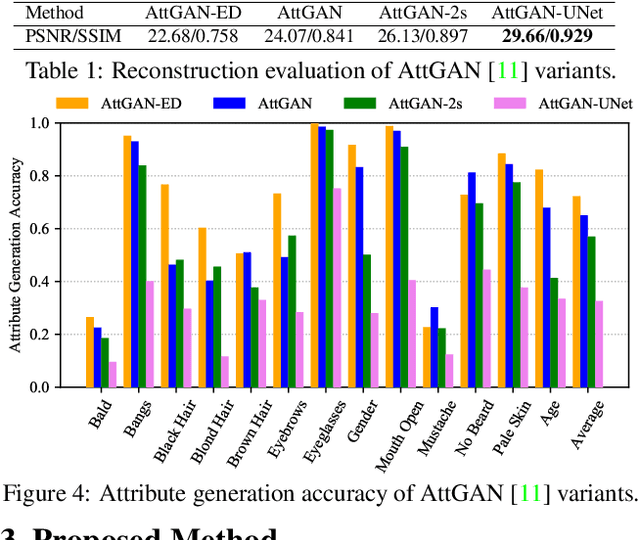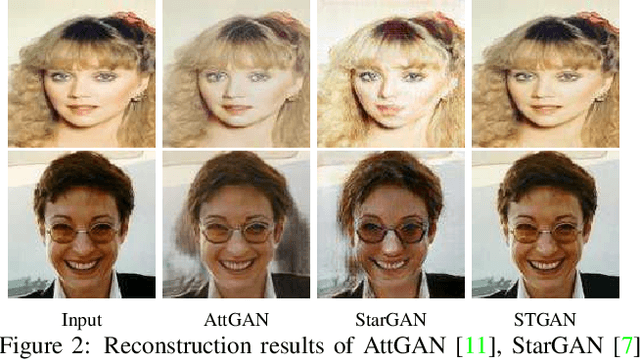STGAN: A Unified Selective Transfer Network for Arbitrary Image Attribute Editing
Paper and Code
Apr 22, 2019



Arbitrary attribute editing generally can be tackled by incorporating encoder-decoder and generative adversarial networks. However, the bottleneck layer in encoder-decoder usually gives rise to blurry and low quality editing result. And adding skip connections improves image quality at the cost of weakened attribute manipulation ability. Moreover, existing methods exploit target attribute vector to guide the flexible translation to desired target domain. In this work, we suggest to address these issues from selective transfer perspective. Considering that specific editing task is certainly only related to the changed attributes instead of all target attributes, our model selectively takes the difference between target and source attribute vectors as input. Furthermore, selective transfer units are incorporated with encoder-decoder to adaptively select and modify encoder feature for enhanced attribute editing. Experiments show that our method (i.e., STGAN) simultaneously improves attribute manipulation accuracy as well as perception quality, and performs favorably against state-of-the-arts in arbitrary facial attribute editing and season translation.
 Add to Chrome
Add to Chrome Add to Firefox
Add to Firefox Add to Edge
Add to Edge